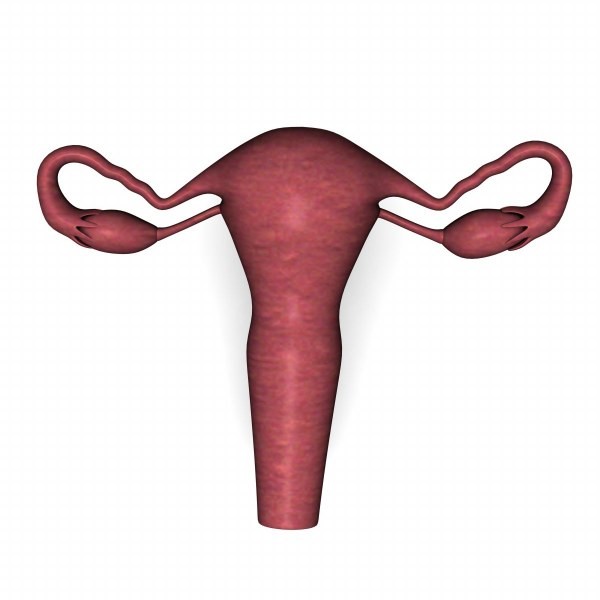Hysterectomy comes from the word “hystera†which means “uterusâ€â€”the body part that symbolizes womanhood. We often see the word, hystera combined with other suffixes indicating to words related to the uterus. The main function of the uterus is to accept the fertilized ovum to be implanted on its walls to be nurtured. The uterus becomes the home of the fetus, nourishing and protecting the baby all throughout pregnancy. This function makes the uterus a very important body part to women. We all know that men are women are alike except on the physical attributes. Only women have uterus and only women can bear a child.
 Hysterectomy is the surgical removal of the uterus. Each woman who has a hysterectomy may have a unique reaction. There are many typical changes that may occur after hysterectomy but symptoms are in case to case basis. The procedure may also include the removal of the ovaries, depending on the situation. If the ovaries are removed along with the uterus, hot flashes or other menopausal symptoms may be experienced. When the uterus is removed, menstruation will no longer occur because the bleeding during menstruation is caused by the sloughing off of the uterine walls that occurs due to hormonal changes that comes with the menstrual cycle. After hysterectomy, your doctor may prescribe some hormonal replacement therapy to facilitate in the hormonal imbalance causing these hot flashes and post-menopausal symptoms.
Hysterectomy is the surgical removal of the uterus. Each woman who has a hysterectomy may have a unique reaction. There are many typical changes that may occur after hysterectomy but symptoms are in case to case basis. The procedure may also include the removal of the ovaries, depending on the situation. If the ovaries are removed along with the uterus, hot flashes or other menopausal symptoms may be experienced. When the uterus is removed, menstruation will no longer occur because the bleeding during menstruation is caused by the sloughing off of the uterine walls that occurs due to hormonal changes that comes with the menstrual cycle. After hysterectomy, your doctor may prescribe some hormonal replacement therapy to facilitate in the hormonal imbalance causing these hot flashes and post-menopausal symptoms.
Reasons For Hysterectomy
There are many reasons for hysterectomy to be done. Hysterectomy may be optional or not optional for some conditions. Hysterectomy may be optional for those situations involving mild to moderate pain symptoms and hemorrhage that can be managed with hormonal therapy, mild uterine prolapse that can be managed with surgery without the removal of the uterus. Conditions that may require hysterectomy that is not optional in nature include invasive cancers of the female reproductive system, severe infections that are unresponsive to treatments, PID, severe haemorrhaging that may cause life threatening complications, and rupture of the uterus. Hysterectomy can help conditions such as severe uterine prolapsed, endometriosis, fibroids, chronic pelvic pain, or certain cases of hyperplasia that greatly affects optimum level of functioning.
After the Hysterectomy
As with any surgical procedure, pain and fatigue are normal parts of recovering. The recovery from hysterectomy often takes about four to eight weeks. Sexual intercourse should not be resumed until you are told by the doctor that it is now safe. This is to avoid bleeding or any untoward symptoms such as pain to occur. Lifting, pushing, straining, or pulling should also be avoided at all costs as it causes pressure to the surgical site. This also includes lifting babies and children. These should be avoided strictly to prevent any untoward complication such as bleeding, dehiscence, or severe pain.
After the surgical removal of the uterus, a woman becomes more prone to heart diseases and have long term effects on health. This is due to the drop of hormones that may produce other symptoms as well. Estrogen is depleted in the body and so increases the risk of developing heart diseases and osteoporosis. Many women are also more likely to become depressed after hysterectomy because the uterus plays a huge part of being a woman. The capability of childbearing of a woman now becomes impossible that is why any woman needs to fully understand the pros and cons of the surgery before making a decision to have a hysterectomy. Many women also experience low libido, inability to orgasm, or other sexual dysfunctions. Due to depleted hormones, the woman’s vaginal canal becomes very dry and hormonal therapy or the use of lubricants become the option for a more enjoyable intercourse. Surprisingly, after hysterectomy, many women report an increase in sex drive and many women enjoy sex all the more because of the elimination of the pain symptoms that were the problems before having their uterus removed. The removal of both the uterus and ovaries causes a rapid decline in the sex hormones. Some women miss the uterine contractions that occur during orgasm while others do not feel a change in these sensations. Removal of the cervix may cause a change in the way that penetration during coitus is experienced. Many women find their sex lives greatly improved after a hysterectomy. It is a case to case basis.

Hot Flashes: One of the most irritating Post-Menopausal symptom.
Having both ovaries removed during hysterectomy causes surgical menopause. It is an instant and, in many cases, intense onset of menopausal symptoms, sometimes more severe than the naturally occurred menopause. This should also be discussed by the doctor before having the surgery and hormonal replacement therapy options should be outlined after the surgery to manage the hormonal imbalances.
Many doctors will refer a woman to a social worker or a support group before or after hysterectomy in order to assist the woman in the life-changing circumstance that she will be going through when she has her uterus removed. Talking with women who had their uterus removed may be beneficial in order for the patient to have an in depth knowledge about the experiences of women who went through this procedure.
